Why Does My Car Squeak When I Turn?
Hearing your car squeak when you turn the wheel can be worrying. One common reason is low power steering fluid, which makes steering harder. Our blog will guide you through why this happens and how to fix it, giving your car a smooth, quiet ride again.
Why Does My Car Squeak When I Turn?
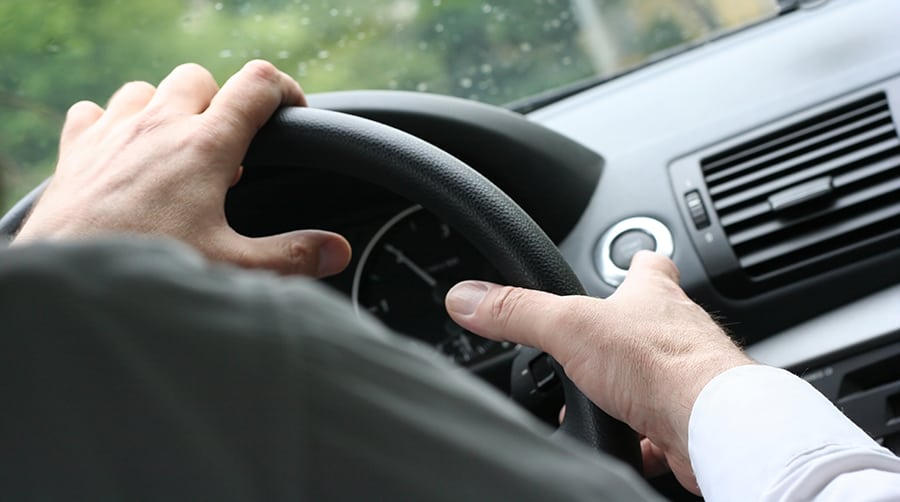
If your car squeaks when you turn the wheel, it could be due to power steering failure, low power steering fluid, contamination of power steering fluid, belt issues, rubbing against interior trim, or the presence of an unusual surface or new vehicle.
Power Steering Failure
Power steering failure can make your car squeak when you turn the wheel. This problem often happens because of issues with the power steering pump or other system parts. The hoses, steering gear, and pump all help you steer smoothly.
Turning the wheel may cause a squeaking noise if something goes wrong with these parts.
A broken power steering belt is a common reason for this issue. Over time, belts can get loose or worn out. When they don’t grip well anymore, they slip and might squeal during turns.
Jerky movements in the steering could also be a clue that there’s trouble with your power steering system.
Low Power Steering Fluid
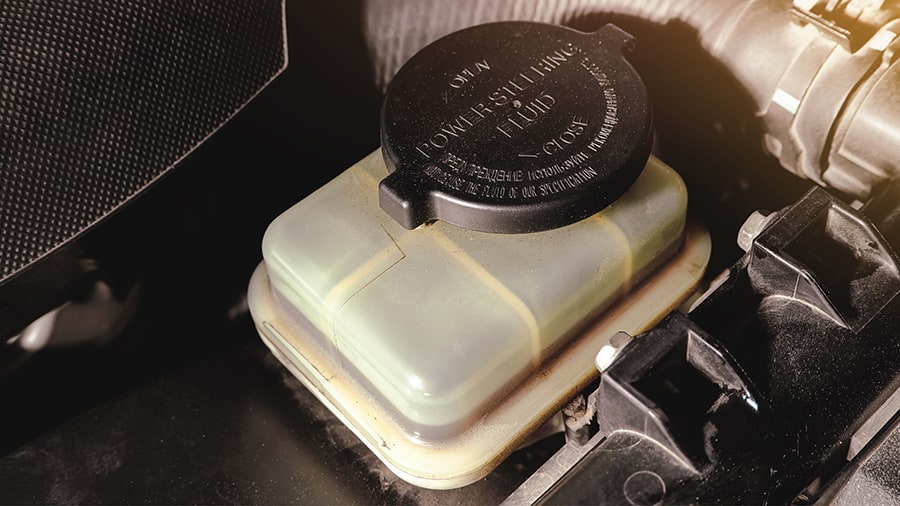
Insufficient power steering fluid leads to squeaking when turning the wheel. Low fluid levels cause increased friction between components, resulting in irritating noise while maneuvering.
Driving with low power steering fluid creates a squealing sound and risks damaging the power steering system, including the pump and hoses.
Maintaining adequate power steering fluid is crucial for the smooth and quiet operation of the steering mechanism. Regularly checking and topping up the power steering fluid can prevent unnecessary wear on parts and ensure the efficient functioning of the power steering system, ultimately avoiding unpleasant squeaking noises during turns or maneuvers at low speeds.
Contamination of Power Steering Fluid
Contaminated power steering fluid, such as dirt or debris, can lead to a squeaking noise when turning the wheel. The impurities in the fluid can cause increased friction within the system, resulting in abnormal sounds during steering maneuvers.
Additionally, contamination can also accelerate wear and tear on critical components like the pump and hoses, leading to potential failures if left unaddressed. Regular checks for fluid quality and timely replacement are essential in preventing these issues from arising.
Belt Issues
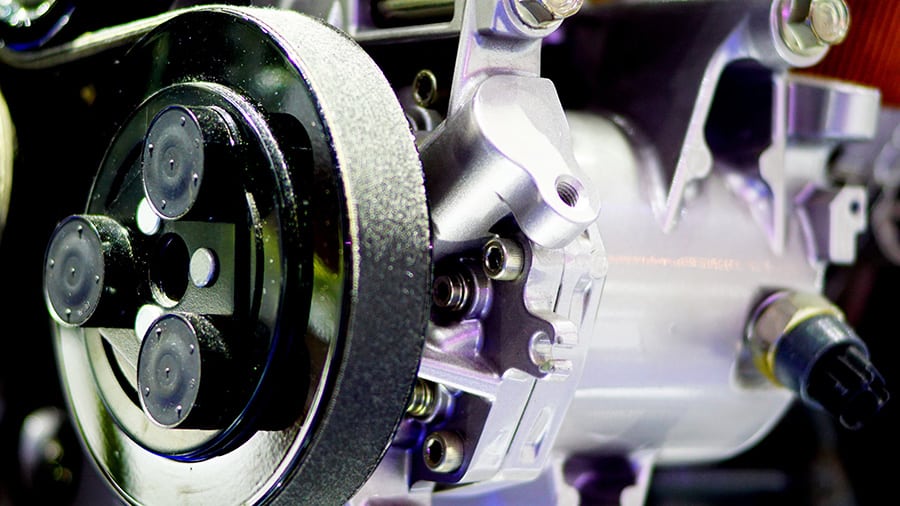
It is essential to investigate potential belt issues upon identifying any contamination in the power steering fluid. A worn or loose power steering pump drive belt can lead to squeaking noises when turning the steering wheel, especially at low speeds or off-center.
Signs of a failing belt may include jerky steering and high-pitched squealing when turning left. Regular inspection of belts and pulleys is crucial to prevent these issues and ensure smooth operation of the power steering system.
Regular checks for any signs of wear or faults in the power steering pump drive belt are vital for maintaining optimal vehicle performance. Noticing any unusual sounds while turning could indicate underlying problems with the belts, demanding immediate attention to avoid further complications.
Rubbing Against Interior Trim
Rubbing against interior trim can result in a squeaking noise while turning the wheel. Lack of proper clearance between the steering components and interior trim may lead to friction and subsequent squeaking sounds, affecting the driving experience.
This rubbing can occur due to wear and tear or improper installation, requiring inspection and potential adjustment to alleviate the issue. Keeping the interior trim well-maintained is crucial for eliminating this source of steering wheel noise.
When turning, rubbing against interior trim can be attributed to insufficient lubrication in the steering system, exacerbating friction between components. The resulting squeaks alert drivers to potential problems that need immediate attention.
Unusual Surface or New Vehicle
If you hear squeaking when turning on an unusual surface or in a new vehicle, it could be due to the lack of proper lubrication and suspension components. Driving on uneven roads or rough surfaces can strain the steering and suspension system, causing squeaking noises even in newer vehicles.
Additionally, changes in driving conditions might put extra stress on these components.
It’s important to note that this issue may also occur in newer cars due to factory defects or imperfections. When driving on different terrains with a new vehicle, closely monitor any uncharacteristic sounds while turning, as they may indicate underlying issues with the steering and suspension systems.
How to Diagnose the Squeaking Noise While Turning
To diagnose the squeaking noise while turning, you can start by checking the power steering fluid and inspecting the belts and pulleys for any signs of wear or damage. Lubricating suspension and steering components can also help identify and address any potential issues causing the squeaking.
Checking Power Steering Fluid
Inspect and locate the power steering fluid reservoir under the hood. Use a clean cloth to wipe the dipstick, then reinsert it fully into the reservoir. Withdraw it again and note the fluid level – it should be within the designated range.
The fluid’s color should be bright; it may need to be changed if it appears dark or cloudy.
Ensure that there are no visible contaminants or metal particles in the fluid. If you notice any of these signs or the fluid level is low, top up with manufacturer-recommended power steering fluid until it reaches the correct level on the dipstick.
Inspecting Belts and Pulleys
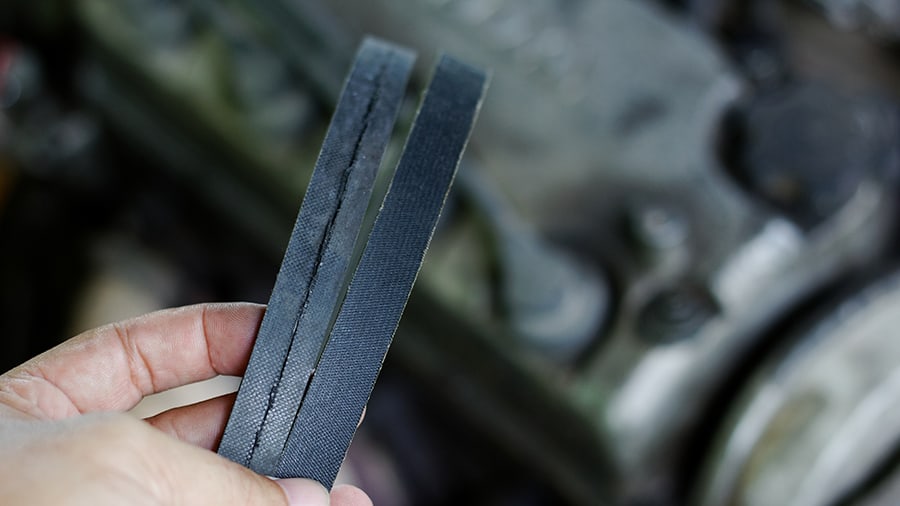
Check the power steering belt for wear, looseness, or damage. Look for cracks, fraying, or glazing on the belt surface. Also, inspect the pulleys for any misalignment or visible damage that could cause squeaking noises when turning.
Use a flashlight to examine the carefully-belts and pulleys’ condition. If any irregularities are found during the inspection, consider replacing worn-out components promptly to prevent further issues with steering and power assist systems.
Be thorough in examining all aspects related to belts and pulleys; these components play a crucial role in maintaining the smooth operation of the power steering system. Watch for any unusual sounds emanating from these parts as you conduct your visual inspection.
Lubricating Suspension and Steering Components
Regularly lubricate suspension and steering components to prevent squeaking noises when turning. Insufficient lubrication can lead to friction, causing the steering system to produce unwanted sounds.
Proper lubrication reduces wear and tear on ball joints, bushings, and other crucial suspension and steering system parts.
Quality lubricants ensure smooth movement of these components, reducing noise and extending their lifespan. By maintaining proper lubrication, you can minimize the risk of squeaking when turning your vehicle while enhancing overall driving comfort.
Common Causes of Squeaking When Turning
Worn power steering belts, failing power steering pumps, dirty or low power steering fluid, and worn ball joints or bushings are common causes of squeaking when turning. Read on to learn more about how to diagnose and prevent these issues.
Worn Power Steering Belt
A worn power steering belt can result in a squeaking noise when turning. This could lead to jerky steering, indicating that the power steering pump drive belt is loose or faulty. The lack of proper lubrication in the steering system can also cause a squeaking sound, resulting in unpleasant driving experiences.
Regular maintenance checks and timely replacement of worn parts are essential to avoid this issue. Using quality lubricants can aid in preventing the deterioration of the power steering belt, ensuring smooth and quiet operations while turning.
Failing Power Steering Pump
When turning the wheel, a failing power steering pump can cause a high-pitched squealing noise. It is often accompanied by difficulty in steering, especially at lower speeds or when turning left or right.
This issue can result from wear and tear on the pump’s internal components, leading to decreased functionality and fluid leakage, ultimately triggering the squeaking sound. Regularly checking the power steering system for any signs of malfunction can help prevent more severe problems down the line.
Dirty or Low Power Steering Fluid
When the power steering fluid is dirty or low, it can lead to a squeaking noise when turning the wheel. Low power steering fluid levels or contamination with dirt and debris can result in increased friction within the system, leading to squeaks while maneuvering the vehicle.
The lack of proper lubrication due to dirty or low power steering fluid exacerbates wear on crucial components, resulting in unpleasant turning sounds.
Regularly checking and maintaining optimal levels of clean power steering fluid is essential to prevent such issues. Additionally, ensuring the power steering system is free from contaminants will help keep smooth and quiet operation while turning.
Worn Ball Joints or Bushings
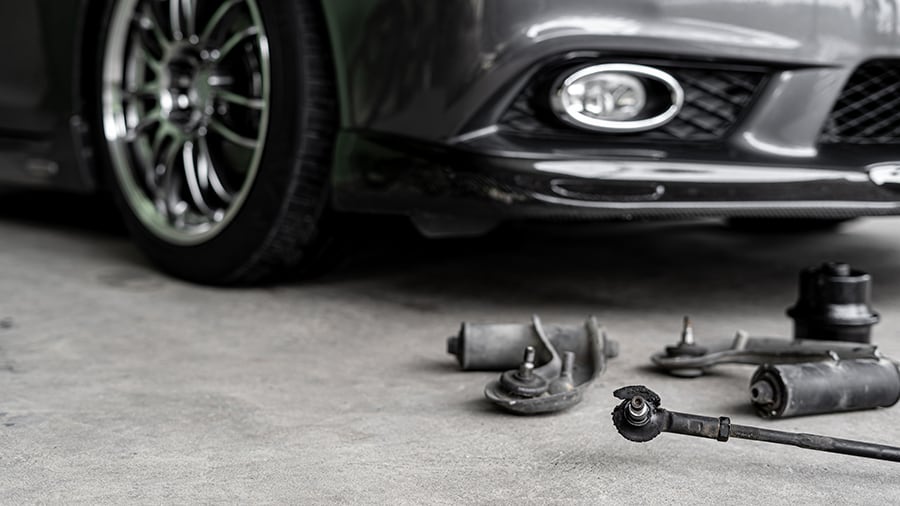
Worn ball joints or bushings can lead to a squeaking noise when turning the wheel. These components support the control arms and help in steering movement, so any wear or damage can cause friction and noise while turning.
Improper lubrication, dirt accumulation, or general wear and tear on these parts can result in a noticeable squeak when navigating corners or going over bumps. Regular inspection and maintenance of these components are crucial to prevent such issues and ensure smooth steering performance.
Preventing Squeaking While Turning
Regular maintenance checks and replacing worn parts can help prevent squeaking while turning. Using quality lubricants on suspension and steering components can also extend the life of these parts and reduce the likelihood of squeaking noises.
Regular Maintenance Checks
Regularly check power steering fluid levels to ensure they are at the recommended level, as low fluid can lead to squeaking while turning. Also, inspect the condition of the power steering pump drive belt for wear and proper tension, which can cause squeaking noises.
Keep an eye on the lubrication of steering system components to prevent friction-related squeaks and replace any worn-out or contaminated parts promptly.
Inspect all belts and pulleys in the power steering system regularly for signs of wear or damage. Replace any worn or damaged parts immediately to avoid potential squeaking issues.
Replacing Worn Parts
Replace worn parts such as the power steering pump drive belt, steering gear, and hoses to eliminate squeaking while turning. Regularly inspect these components for wear and tear to maintain smooth and quiet steering operation.
Using quality replacement parts will ensure long-term performance and prevent recurring squeaking issues. Maintaining proper lubrication in the steering system is also crucial for reducing noise during turns.
Continuously monitor the condition of ball joints and bushings; worn-out or damaged components can contribute to squeaking when turning the wheel. Additionally, utilize quality lubricants compatible with your vehicle’s specifications to keep steering components functioning smoothly.
Using Quality Lubricants
Quality lubricants are essential for maintaining a smooth and silent steering system. Using lubricants specifically designed for power steering and suspension components is vital to prevent squeaking noises when turning the wheel.
Regularly applying quality lubricants to ball joints, bushings, and other steering parts helps reduce friction and wear, thus minimizing the chances of squeaks while turning.
Applying quality lubricants during maintenance checks can significantly prolong the life of steering components. Quality lubricants create a protective layer that prevents metal-to-metal contact, reducing the likelihood of squeaks or unusual sounds when maneuvering your vehicle.
FAQs
Why does my car squeak when I turn the steering wheel?
Your car might squeak when turning because of issues like a loose power steering belt, dirty power steering fluid, or problems with your power steering pump.
Can dirty fluid cause my car to squeak when turning at low speeds?
If your power steering fluid is dirty, it can squeak when you turn your car at low speeds.
Should I worry about the squeak in my car when turning right or left?
Whether you turn right or left, a persistent squeaking noise can signal that something needs maintenance, such as replacing a worn-out steering belt or fixing other vehicle issues.
What should I do if there’s a loud turning noise every time I drive?
It would be best to get your car checked for any potential steering problems or necessary repairs to stop the annoying noises and prevent further trouble with your automobile.
Is it common for cars to have these kinds of noises during turns?
While some automobile noises can be expected, a consistent squeaky sound from your car during turns could mean that parts are wearing out and may need attention soon.
Conclusion
In conclusion, a squeaking noise when turning could be due to a low power steering fluid or a failing power steering system. Regular maintenance checks and using quality lubricants can help prevent squeaking while turning.
Remember to replace worn parts as needed and diagnose the issue by checking the power steering fluid and inspecting belts and pulleys.
